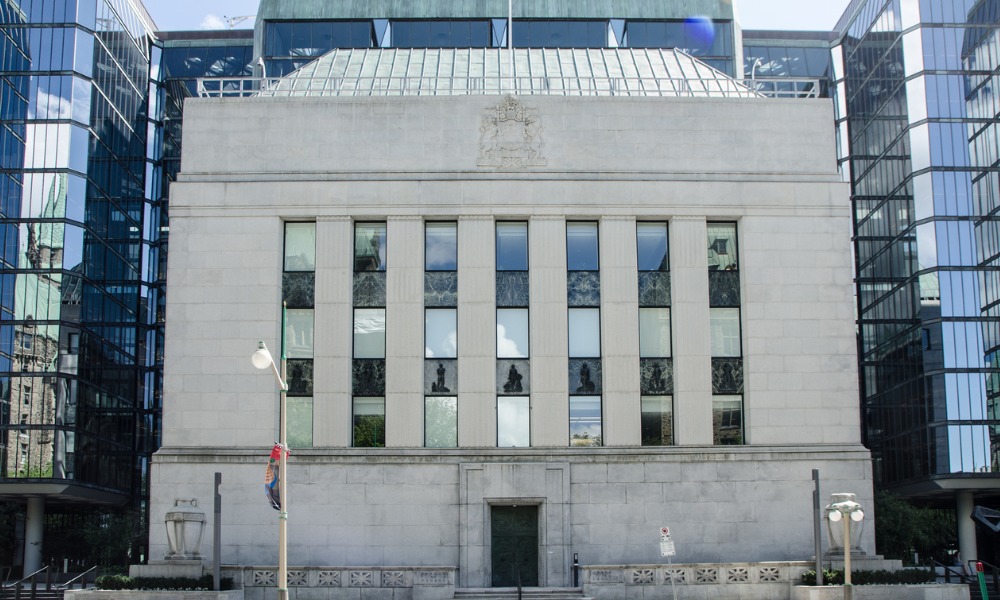Bank of Canada decision could prompt a shock for many

Mortgage holders are anxiously awaiting the Bank of Canada’s interest rate decision today (Wednesday).
While a potential rate cut could offer some relief, the majority of borrowers with fixed-rate mortgages are bracing for increased payments regardless of whether rates rise or fall.
“It’s just so daunting to look at the situation now because even when you’re looking at 4.5% or 5% prime interest rates, I remember when I first got into the market, we were paying 2% to 3%,” said Ryan Ballantine, a Calgary homeowner whose mortgage is up for renewal this summer.
Ballantine, who locked into a two-year mortgage in 2022 at 5.8%, is among many Canadians who locked in low rates during the pandemic.
According to the Canadian Mortgage and Housing Corporation (CMHC), the lowest discounted five-year fixed rate was 1.39% in 2020, compared to 4.79% today.
Over 70% of existing Canadian mortgages have fixed rates up for renewal within the next three years. This year, 13% of fixed-rate mortgages will be renewed, rising to 23% in 2025 and 31% in 2026.
“We were hoping to find ourselves in a better spot from an interest rate perspective, but they haven’t really dropped as fast as we thought they would,” Ballantine told CTV News. “So now the question is: ‘Do we take a variable rate because it’s expected to drop over the next couple of years? Or do we lock ourselves in again?’ At least that might help protect ourselves against any inflation.”
CMHC deputy chief economist Tania Bourassa-Ochoa said that more than one million mortgages were renewed at much higher rates last year.
“So for this year, 2025 and 2026, we’re expecting at least over two million more mortgages to be renewed,” Bourassa-Ochoa said.
Many borrowers who renewed in the past two years chose very short terms and will be renewing again soon.
Despite the high hopes for a rate cut, financial analysts predicted that the Bank of Canada may hold its key lending rate steady for a while longer.
RBC noted in a client memo: “Evidence has continued to build that the current high level of interest rates is no longer needed. Still, while the case for interest rate cuts in Canada is relatively clear — the BoC will likely maintain a cautious tone about the pace of additional cuts after next week.”
Read next: Could mortgage renewals help plunge Canada into recession?
If the Bank of Canada lowers rates, it would be the first rate cut since March 2020. Bank of Canada Governor Tiff Macklem has indicated that any decision will be data-driven. He said the central bank is seeing positive signs but needs sustained evidence of progress toward price stability.
Canada’s inflation rate has slowed, with April’s annual inflation at 2.7%, down from 2.9% in March. Core inflation measures have also eased. However, economic growth in the first quarter fell short of expectations, although the April jobs report showed a significant employment increase.
Mortgage delinquency rates in Calgary have remained low but have seen a slight uptick since January 2023.
According to the CMHC, higher interest rates, elevated housing costs, and rising living expenses are pressuring many mortgage consumers. Financial reserves accumulated during the pandemic are depleting, and low-to-mid-income households are dipping into savings to make ends meet.
Bourassa-Ochoa noted that mortgage arrears could reach pre-pandemic levels (0.25%) by the end of the year, although better employment prospects in 2025 and tight housing market conditions may limit the increase. Alberta’s mortgage delinquency rate stands at 0.28%, higher than the national average.
“Alberta still has been trending down from its peak in 2020 at 0.75%, but in other provinces even if we have lower mortgages in arrears, we’re seeing an upward trend again,” Bourassa-Ochoa said.
Make sure to get all the latest news to your inbox on Canada’s mortgage and housing markets by signing up for our free daily newsletter here.



